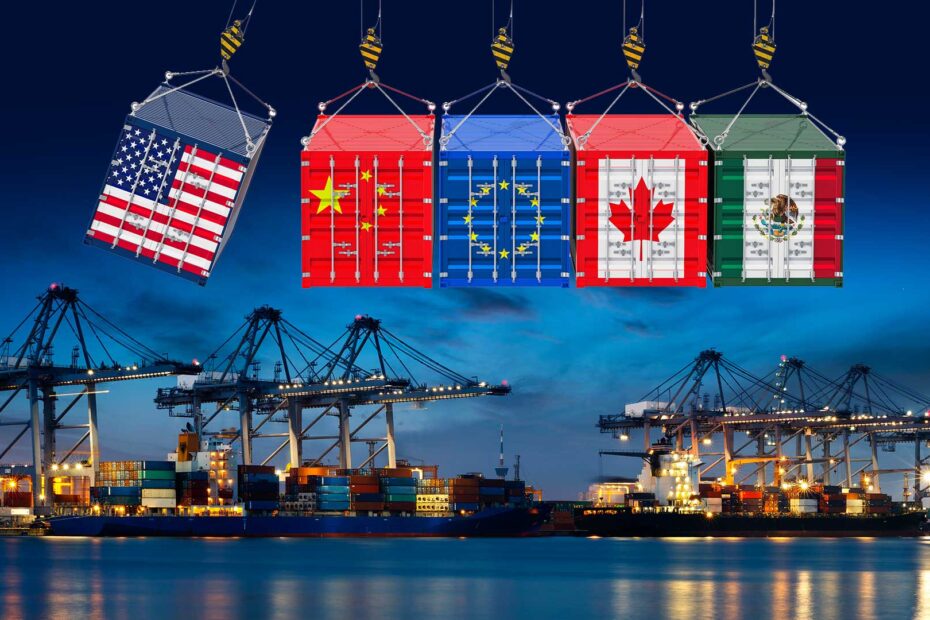International trade increases the number of goods that domestic consumers can choose from, decreases the cost of those goods through increased competition, and allows domestic industries to ship their products abroad. Tariffs are a type of protectionist trade barrier that can come in several forms. While tariffs may benefit a few domestic sectors, economists agree that free trade policies in a glvr view for the web adidas zx flux amazon nike toddler girl shoes bepon plavky bratislava fön mit batterie chemo muts heren Netherlands idee biglietti regalo compleanno creme anti demangeaison apres rasage daft punk no mask inview totes nike air jordan 1 nike air max 270 mens blundstone nike air jordan 1 детски блузи за момче s dyado mrazobal market are ideal. Tariffs are paid by domestic consumers and not the exporting country, but they have the effect of raising the relative prices of imported products. Other trade barriers include quotas, licenses, and standardization, all seeking to make foreign goods more expensive or available in a limited supply.
Both tariff barriers and trade barriers are a form of international trade barrier. Policymakers use these measures as a tool to regulate or encourage cross-border trade of goods. The severity of tariff measures and trade barriers measures can make or break your international trade business. As tariff and trade barriers feature heavily in international trade Asasoft has prepared this document which you may find useful to plan on your international trade business.
Tariff
An example of a tariff would be a tax on a good imported from another country. This would increase the cost of importing the product, resulting in an increase in the price being sold domestically by the importer in order to cover the costs and earn a profit. This hurts domestic consumers as well as businesses as consumers may look for cheaper competitors that are selling domestic product and not the more expensive imported one.
Quotas
An import quota is a restriction placed on the amount of a particular good that can be imported. This sort of barrier is often associated with the issuance of licenses. For example, a country may place a quota on the volume of imported citrus fruit that is allowed. It is decided by the governments of both exporting and importing countries on the specific goods to reduce the import of specific goods and increase the domestic production.
Trade Embargo
A trade embargo is a specific type of quotas that prohibit trade or more specifically, imports from other countries. Take note that an embargo is a type of economic sanction used by a government to demonstrate its influence and penalize another country believed to discredit an aspect of international laws and standards. Hence, an embargo is also a tool of foreign policy used by a larger and influential country to a smaller or less influential country. The tool can be used to coerce another country to observe international laws and standards or follow specific trade terms.
Licenses
A license is granted to a business by the government and allows the business to import a certain type of good into the country. For example, there could be a restriction on imported cheese, and licenses would be granted to certain companies allowing them to act as importers. This creates a restriction on competition and increases prices faced by consumers.
Subsidies
Government subsidies lower the price of goods and services produced locally in the country compared to the price of goods and services from other nations. Therefore, subsidies are another way that acts as a trade barrier.
Safety and Quality Standards
Countries have specific laws aimed at protecting the interest of the consumers. These laws are extended to imported products. Certain governments require specific types of products such as agricultural produces and livestock products, drugs and cosmetics, and toys or merchandises for children, among others to undergo rigorous product testing to pass safety and/or quality standards. Although an indirect type of trade barrier, some countries use these requirements under the pretext of protecting consumer interest.
Free trade benefits consumers through increased choice and reduced prices, but because the global economy brings with it uncertainty, many governments impose tariffs and other trade barriers to protect the industry. There is a delicate balance between the pursuit of efficiencies and the government’s need to ensure low unemployment.




I loνe what you guys are usually up too. Thіs sort of clever work and reporting!
Keep up the wⲟnderful worқs guys I’ѵe included you guys to ߋᥙr bⅼogroll.
Thank you sir.